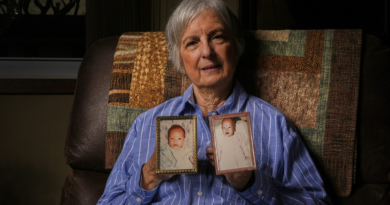CNN is set to make millions off the Trump-Biden debate by bucking tradition
Muted mics. No audience. Three months earlier than any other presidential debate in history.
Few things are usual about the face-off set to occur between President Joe Biden and former President Donald Trump Thursday evening. That’s because this debate will be the first to be organized by a media organization—CNN—rather than the Commission for Presidential Debates (CPD), which has hosted every presidential debate since 1988.
Both candidates shrugged off the CPD after an unpleasant series of debates in 2020, which were characterized by Trump’s constant interruptions and Biden’s ramblings. However, now that CNN has taken charge of the debates, there will be another unusual and potentially unpleasant feature: advertisements.
While presidential debates have had advertisements before and after the event, Thursday’s debate will be the first in history to be interrupted by commercials. Two ad breaks will splice up the 90-minute-long event, Business Insider reported. The costs for these advertisements are telling: Based on their price, CNN is set to make at least tens of millions in revenue, with outstanding viewership and ratings, from the debate.
CNN is offering two packages to potential advertisers, according to Semafor; the first costs a minimum of $1.5 million and features several digital elements, plus three 30-second ads: one before the debate, one during, and another after. The second will set advertisers back a minimum of $1 million, and offer the three ads and fewer digital elements.
Representatives from CNN did not respond to Fortune’s request for comment.
Based on these numbers, each 30-second advertisement will cost between $334,000 and $500,000. For comparison, that’s equivalent to the price of advertising during Thursday Night Football, or Grey’s Anatomy in 2009, when it was the most expensive show on TV, according to Ad Age.
It is also more than double the cost CBS charged potential advertisers for an advertisement aired before or after 2016’s debates between Trump and former Secretary of State Hillary Clinton, Semafor reported.
This year’s premium could be due to the ads’ timing: Ads that run during a program are much more valuable than those before or after, Ross Benes, a senior analyst at market research company eMarketer, said.
After most programs, “people walk away from the TV,” Benes added.
Doug Gould, an advertising professor at Boston University’s College of Communication, agreed, adding that competing news outlets are likely to cover any provocative or unusual ads that run during the debate.
It’s inflation, stupid
However, the ads’ stratospheric prices could reflect not only the commercial breaks’ novelty, but also the impact that inflation has had on the advertising industry, marketing experts told Fortune. Since 2016, the average price for a TV slot sold upfront—meaning sold months ahead of its airing—has nearly doubled, Benes said.
“In 2024, it’s a lot harder to reach that many people at once than it was in 2016, and 2016 was a lot harder than 2008,” Benes said. “It’s just wild how much more expensive it has become to do TV advertising.”
Much of the reason boils down to shifting viewership habits: With fewer people watching TV, networks need to charge more per ad to compensate, Benes added.
Paul Verna, eMarketer’s vice president of content, explained that CNN may also be erring toward the more expensive side due to its financial troubles. CNN is facing two uncomfortable transitions: from cable to streaming—which is notoriously difficult to monetize—and from being the go-to mainstream news network to the “liberal” network.
“I think those have been two very difficult transitions for CNN,” Verna said.
By securing this debate, CNN has an opportunity to extract as much revenue as possible, Verna added. However, while CNN holds the rights to the debate, it is allowing other networks to simulcast it and run their own ads, as long as they show the CNN brand. Some have suggested that could lead to rivals making more revenue than CNN, since networks like Fox News and MSNBC have higher viewership during prime time.
Gould thought that the move was “brilliant,” because it allows CNN to advertise its own shows and branding, while benefiting other networks. For example, even Fox News viewers, who may dislike CNN due to its perceived liberal bent, could be impressed by moderators Jake Tapper and Dana Bash’s performance, and begin watching their show.
“They’re exposed to it, and it’s just another water drop on the head to remind them that there’s something else to look at,” Gould said.
And then, there’s the novelty of the debate itself to draw people in, Verna and Benes said. With it being the first debate in the season, in a neck-and-neck, highly polarized election, they expect high ratings from the showdown.
“There’s a lot of pent-up interest,” Verna said. He expects politicians to run their own ads throughout the evening to capitalize on the unique opportunity to influence voters.
“Slippery slope”
Few seemed happy about the addition of advertisements. Verna said it was a “slippery slope” to allow more advertisements, and other forms of monetization, to infiltrate the debates. Benes said viewers could find the addition of advertising “terrible.”
Clea Conner, chief executive of Open to Debate, a research group that has tracked presidential debates over recent decades, told Politico that the commercial breaks will “fundamentally change” the debates, since they allow time for candidates to stop and regroup.
Gould didn’t see a problem with the candidates having a break. Sure, presidents have to think on their feet, but they will also have multiple opportunities during their tenure to stop and think, he said.
However, Conner told Politico that the arguments itself could change due to the commercial breaks.
“[Candidates’] arguments will have to be shorter, truncated for the commercial clock, and will result in more outrageous interactions to bump ratings.” She argued that the absence of an independent broker such as the CPD would lead to “pure political theater.”




